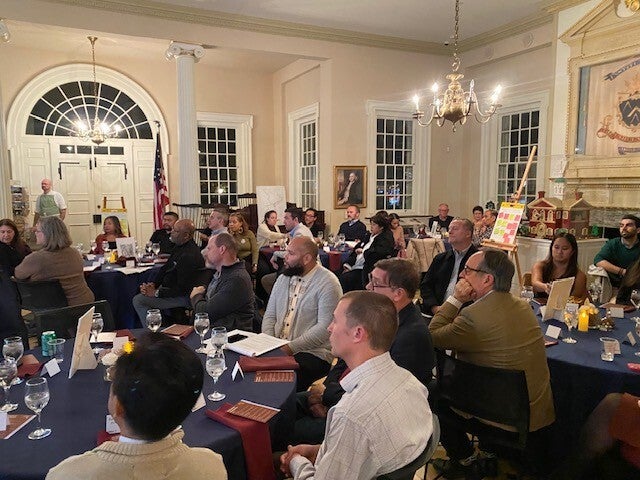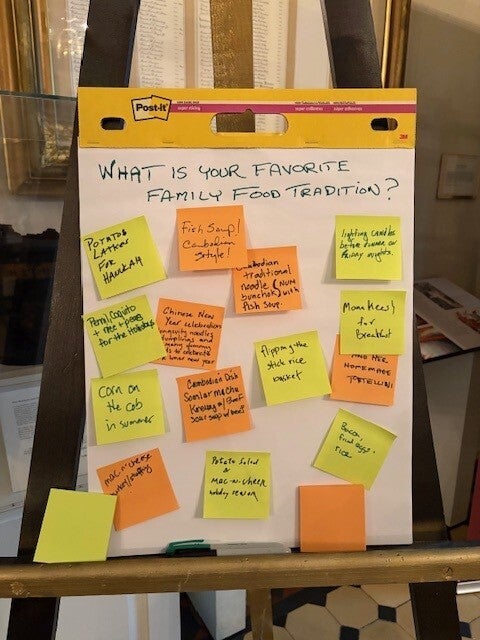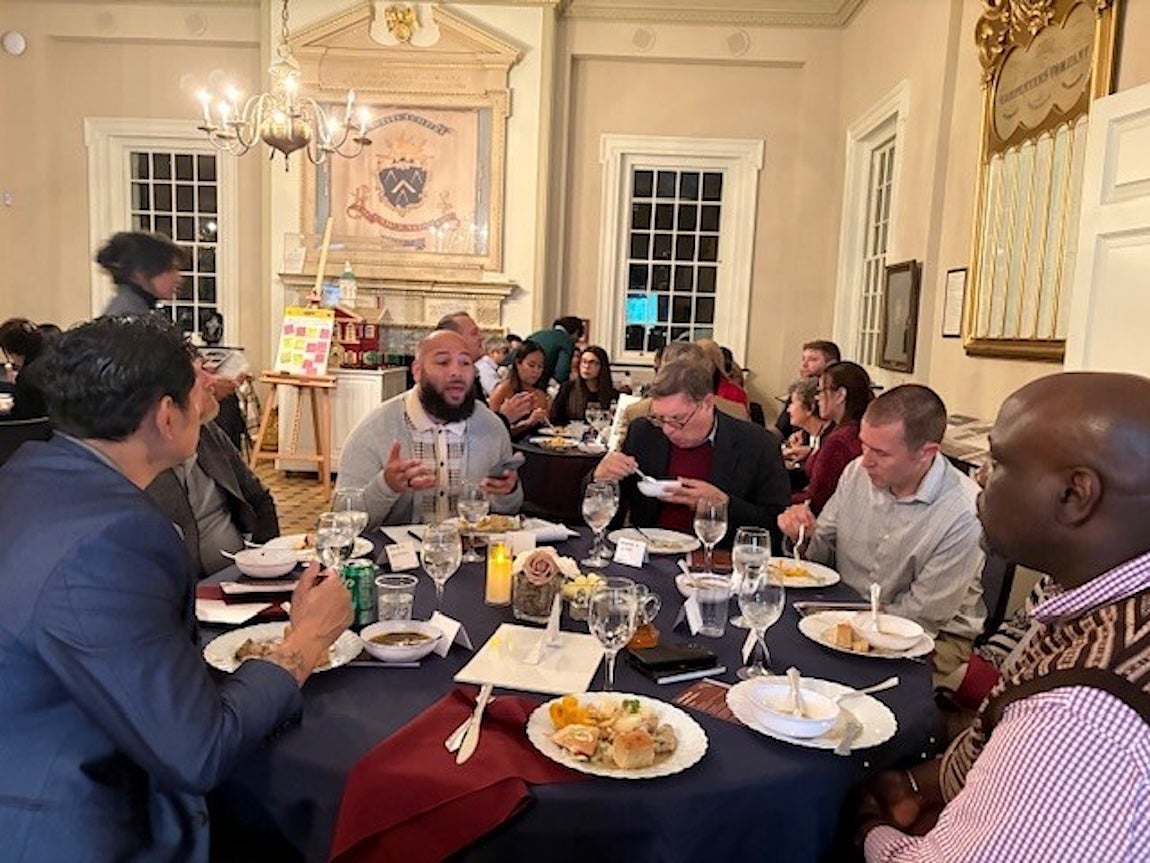What will be the focus of the 2026 ‘Breaking Bread, Breaking Barriers’?
In the 2026 edition of the program, participants will first discover what they have in common through food-based methodology, and then engage in conversations about what it means to be a citizen, as defined by the rights and responsibilities of all city residents.
“The hope is that we leave behind a set of principles, a set of covenants, however you want to refer to it, that not only we put into practice here in Philadelphia, post 2026,” Gupta said, “but as other cities, other states, frankly, other countries continue to grapple with what is probably the largest human migration in the history of the world … we come to see some contemporary understanding of what citizenship really means, not the first- and second-tier status that the government affords you when they classify you as a citizen or noncitizen.”
Gupta said those conversations echo the focus of semiquincentennial celebrations that will examine the role Philadelphia played in shaping the nation’s roots and ideals.
“Just like 250 years ago, we gave the rest of the world some thought leadership on what this notion of democracy could be. The idea is to give the world some thought leadership on what citizenship can be,” he said.
Gupta said talking about citizenship across immigration status is particularly important now, as the Trump administration has increased immigration enforcement.
“If we don’t talk about it and we don’t form connections about it, then everything that is being said and done to further divide people, particularly along these lines, the state definition of citizenship,” he said, “that narrative wins.”
Philadelphia’s foreign-born population has grown significantly since the early 2000s, with immigrants now making up the highest percentage of the city’s population since the 1940s.
“It’s happened organically and it’s happened intentionally,” Gupta said. “It’s happened because of work by organizations like The Welcoming Center. It’s happened because change in posture and policy by mayors and city councils and business leaders. But it’s also happened because people have either subconsciously or consciously adopted a set of principles about how they want to live, how they want to see their communities, how they want to treat their neighbors. And my hope is that this, in some ways, codifies what we’ve seen transpire in Philadelphia over the last two decades, because Philadelphia is a poster child of how immigration can benefit everybody.”
The 2026 series is funded by the city of Philadelphia, The Philadelphia Funder Collaborative for the Semiquincentennial and the William Penn Foundation.
 The Welcoming Center is hosting a series of community dinners, called “Breaking Bread, Breaking Barriers: The Citizenship Project” in 2026 to spark discussion about what it means to be a citizen. Two pilot dinners for the program were held in November 2025. (Courtesy of The Welcoming Center)
The Welcoming Center is hosting a series of community dinners, called “Breaking Bread, Breaking Barriers: The Citizenship Project” in 2026 to spark discussion about what it means to be a citizen. Two pilot dinners for the program were held in November 2025. (Courtesy of The Welcoming Center)
When and where is it happening?
Seven diverse neighborhoods in Philadelphia will host a series of three dinners each between January 2026 and late summer 2026.
The seven zip codes for the project — located in Southwest Philadelphia, West Philadelphia, South Philadelphia, Northeast Philadelphia and North Philadelphia — all have a high percentage of native-born and foreign-born residents.
Community partners and organizations in each neighborhood will work with The Welcoming Center to recruit participants, host the dinners and ensure language access for all attendees.
A final collective dinner will be held for all of the more than 1,000 participants. Gupta said he would like to host that event at Independence Mall in September or October 2026.
 The Welcoming Center is hosting a series of community dinners, called “Breaking Bread, Breaking Barriers: The Citizenship Project” in 2026 to spark discussion about what it means to be a citizen. Two pilot dinners for the program were held in November 2025. (Courtesy of The Welcoming Center)
The Welcoming Center is hosting a series of community dinners, called “Breaking Bread, Breaking Barriers: The Citizenship Project” in 2026 to spark discussion about what it means to be a citizen. Two pilot dinners for the program were held in November 2025. (Courtesy of The Welcoming Center)
How to get involved
Anyone interested in participating in the dinners or learning more about the project should check on The Welcoming Center’s website and social media profiles. More than 20 community partner organizations will also be releasing information in the coming months about the dinners.
“If folks are interested in getting involved, once we start to set the dates and the venues, they should reach out to the partner organizations in those communities,” Gupta said.
